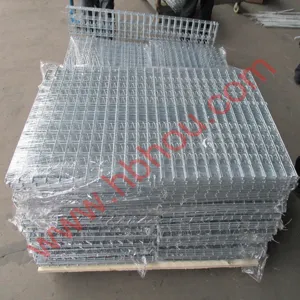Understanding Expanded Metal Mesh Pricing
Expanded metal mesh is a versatile material widely used across various industries, including construction, architecture, and manufacturing. Its unique properties and structural advantages make it a preferred choice for many applications. However, one crucial aspect that potential buyers often consider is the pricing of expanded metal mesh. In this article, we will delve into the factors influencing the cost of expanded metal mesh, the various types available, and provide some tips on how to choose the right mesh for your needs while keeping budget considerations in mind.
What is Expanded Metal Mesh?
Expanded metal mesh is created from a solid sheet of metal that is sliced and stretched to form a network of interconnected, diamond-shaped openings. This process not only maintains the integrity of the material but also enhances its strength-to-weight ratio. Expanded metal mesh can be made from various metals, including steel, aluminum, and stainless steel, each offering different characteristics and benefits.
Factors Influencing Pricing
1. Material Type The type of metal used significantly affects the price. For instance, stainless steel is generally more expensive than aluminum due to its durability and corrosion resistance, making it preferable for outdoor or industrial applications. Mild steel, on the other hand, is cost-effective but may require additional coatings to prevent rust.
2. Thickness and Gauge The thickness of the original metal sheet before expansion impacts the final price. Thicker sheets provide enhanced durability and strength, making them suitable for heavy-duty applications but at a higher cost. The gauge of mesh is also a factor; finer gauges yield more intricate patterns but may also cost more.
3. Sheet Size Larger sheets of expanded metal mesh generally come at a higher price due to the increased material consumption. Buyers should consider their project needs carefully, as purchasing larger sheets can sometimes allow for cost-saving over smaller sheets.
4. Pattern and Expansion Ratio The design of the mesh also influences the price. More complex patterns or higher expansion ratios (the amount by which the metal is stretched) often require more intricate manufacturing processes, leading to increased costs. Simple diamond patterns are usually more economical.
5. Finish and Coating Additional treatments, such as galvanizing or powder coating, can enhance the durability and aesthetics of expanded metal mesh but will increase the overall cost. These coatings provide protection against rust and corrosion and are particularly useful in outdoor applications.
6. Volume Purchases Ordering in bulk can often result in discounts and lower per-unit costs. Suppliers may offer favorable pricing structures for larger orders, which can significantly reduce the project's budget.
expanded metal mesh harga

Types of Expanded Metal Mesh
There are several types of expanded metal mesh, including
- Standard Expanded Metal The most common type, providing good ventilation and visibility while maintaining strength and security. - Flattened Expanded Metal This type undergoes an additional process to flatten the mesh, giving it a smoother surface and making it ideal for applications requiring a flat finish. - Micro Expanded Metal With smaller openings than standard expanded metal, this variant is often used for fine filtration and decorative applications.
Tips for Choosing Expanded Metal Mesh
1. Determine Your Needs Identify the purpose of the expanded metal mesh—whether for security, aesthetic purposes, or functional applications such as filtration.
2. Consider Performance Requirements Understand the load-bearing capacity and environmental factors affecting your choice. If the mesh will be exposed to harsh conditions, opt for a more durable material.
3. Get Multiple Quotes Pricing can vary significantly between suppliers. Obtaining multiple quotes helps you understand the market and negotiate better deals.
4. Review Samples If possible, request samples or visit a supplier to examine the different types and finishes available. This can help you choose the mesh that best meets your project requirements.
5. Plan for Installation Costs Consider not only the purchase price but also the costs associated with installation, as these can add to your overall budget.
Conclusion
Expanded metal mesh offers a range of benefits for various applications, but its pricing can vary widely based on multiple factors. By understanding these elements and carefully considering your project needs, you can make an informed decision that balances quality and cost. Whether you require expanded metal for construction, decorative purposes, or industrial use, being knowledgeable about its pricing and types can aid in selecting the best option for your budget.
















